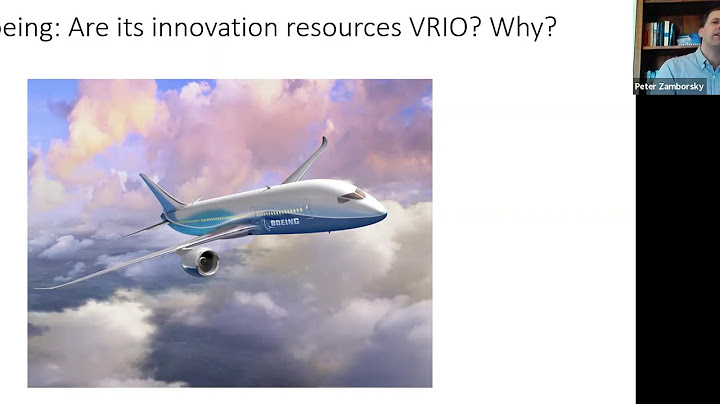MNC's setup their units in different countries according to the availability of raw material,to decrease cost of production,according to availabitlity of Educated employees
MNC are companies which do trade among different countries.they are spread along border becoz it is easy for them in transportation and trading between differenet countries.MNc setup their industries in different countrie where they see cheap raw material , easy excess to market ,excess to skilled and unskilled labour wher government take care of them .For ex. infosys , Cargo Food , ranbaxy ,ford etc
A) Show/hide Answer Q) Expand MNC?A) Show/hide Answer
Multinational corporation Q) Investment made by MNCs is called?A) Show/hide Answer Q) Process of Integration of different countries is called?A) Show/hide Answer Q) What is rapid integration between countries?A) Show/hide Answer Q) The money that is spent to buy assets such as land, building, machines and other equipment is called?A) Show/hide Answer Q) Full form of MNCs?A) Show/hide Answer Q) Which rules have forced the developing countries to remove trade barriers?A) Show/hide Answer Q) The money that is spent to buy assets such as land, building, machines and other equipment is called ?A) Show/hide Answer Q) Investment made by MNCs is called ?A) Show/hide Answer Short Answer Questions: Q) What are the functions of WTO?A) Show/hide Answer
The main functions of the WTO are: 1.Administering WTO trade agreements. 2.Providing forum for trade negotiations. 3.Handling trade disputes. 4.Monitoring Members' trade policies. 5.Providing technical assistance and training to developing and least developed economies. 6.Cooperating with other international organizations. Q) Explain visible impacts of globalization on the Indian economy, with two examples?A) Show/hide Answer
The Globalisation has impacted Indian economy in the following ways: (i) Increase in foreign investment, Over the past twenty years, the foreign investment has increased. (ii) Emergence of Indian companies as multinational Several of the top Indian companies like Tata Motors, Infosys, Ranbaxy have been able to get benefit from the increased competition created as a result of Globalisation. (iii) Creation of new opportunities Globalisation has created new opportunities for Indian companies, particularly providing services like IT. Q) What is globalization? Mention two main shortcomings of globalization in the context of India?A) Show/hide Answer
The globlisation is a process of going to more interconnected world or it is a process of developing international influence between nations,companies or people through out the world which leads to a cohesive and integrated global economy.Some shortcomings of this globalisation are: 1.Small manufactures were hit hard. 2.Worker's job is no longer secure because companies are trying to cut costs of products leading to cut in labour costs. Q) What are the various ways in which countries can be linked?A) Show/hide Answer
Some of the ways in which countries can be linked are (i) Movement of goods between countries. (ii) Services being provided for one country from another country (e.g. call centres). (iii) Foreign investments being done by one country with companies in another country. (iv)Immigration of people into one country from another for working there or for study. Q) What are the ways in which MNCs set up or control production in other countries?A) Show/hide Answer
These are the the ways in which MNCs set up or control production in other countries: 1) By buying local companies of an area. 2) By making partnership with the owner of local companies. 3) By investing in local companies to encourage the production of foreign product in any country. Q) How rapid movement in technology has stimulated the globalization process? State through examples?A) Show/hide Answer
Rapid improvement in technology has been playing a key role in encouraging the globalization process. Improvements in transportation technology, e.g. container manufacturing has made faster delivery of goods across long distances at lower costs. There have been rapid developments in information and communication technology, e.g. computer, internet, etc. They have made easy access to any person or place around the world. Thus, it can be said that technology has stimulated the globalisation process. Q) Give examples of industries where the small manufacturers have been hit hard due to competition?A) Show/hide Answer
->so many small manuacturers have been hit by others due to competition during globalisation. ->Batteries, capacitors, plastics, toys, tyres, dairy products, and vegetable oil are some examples of industries where the small manufacturers have been hit hard due to competition. Several of the units have shut down rendering many workers jobless Q) It creates an opportunity for the producers to reach beyond the domestic market. What does it refer to?A) Show/hide Answer
1)Generally it refers Globalization. 2)And sometimes foreign trade creates an opportunity for the producers to reach beyond the domestic markets. 3)By using this new jobs are created in industries. 4)It refers to the various restrictions which are used by the government of a country to increase or creates an opportunity for the producers to reach beyond domestic markets. Q) Write a short note on Conclusion?A) Show/hide Answer Q) Write a short note on Other Issues?A) Show/hide Answer Q) Write a short note on Entrepot Trade?A) Show/hide Answer Q) Write a short note on Export Trade ?A) A) Show/hide Answer Q) Write a short note on Multinational Corporations ?A) Show/hide Answer Q) Write a short note on Merits?A) Show/hide AnswerLong Answer Questions: Q) Explain the Interlinking Production Across Countries?A) Show/hide Answer Q) Explain the Advantage of Spreading Out MNC in Different Countries?A) Show/hide Answer Q) Explain the Spreading of Production by an MNC?A) Show/hide Answer Q) Explain the Globalisation Types of movementt?A) Show/hide Answer Q) Explain the Foreign Trade And Integration Of Markets?A) Show/hide Answer Q) Explain the Factors That Have Enabled Globalisation?A) Show/hide Answer Q) Explain the World Trade Organisation?A) Show/hide Answer
Globalisation  There are three types of movement within international economic exchanges. First flow
 Local Government policies should be in their interests.
When the above conditions are to their satisfaction MNCs set up factories and offices for production in different countries. As these MNCs are setting up factories in a foreign country, the investment they make in terms of acquiring land, constructing buildings and buying machinery is called foreign investment. 
Foreign Trade And Integration Of Markets
 Foreign trade is nothing but trade between the different countries of the world. It is also called as International trade, External trade or Inter-Regional trade. It consists of imports, exports and entrepot. Foreign Trade can be divided into following three groups :- Import Trade : Foreign trade basically takes place for mutual satisfaction of wants and utilities of resources. Integration Of Markets
 MNCs and Globalisation
A good example is the issue of climate change. Initially, the issue of reducing carbon emissions were left to individual countries. However, it was soon found that if one country were to attempt to reduce carbon emissions, industry could just shift to another location where there are lower regulations. Consequently, the issue of carbon emissions and climate change has to be tackled by countries together
World Trade Organisation


 What has been the effect of globalisation on the lives of people?

An important question that has often been debated is whether globalisation has seen the demise of nation state or not. For most part of the time, the nation state with people organised on territorial grounds was the main form of political organisation when it came to demarcating countries. This territorial division created divisions of us and them, of outside and inside and laid the psychological foundations for creating a feeling for one's own country, the feeling of nationalism. The single most important impact of globalisation is the gradual dilution of this feeling.Another issue that received attention is about Conclusion:Globalisation is the process of rapid integration of countries. It is a major change that occurred across the globe in the late 20th century. This has economic, political as well as cultural dimensions. Integration of markets and production through trade and investments controlled by the multinational corporations with huge wealth and power is one hallmark of the present phase of globalisation. Liberalisation, by removing barriers to trade and investment, has opened the economies to the forces of globalisation. The benefits of globalisation have been unevenly distributed. It has benefited well-off consumers and as well as producers with skill, education and huge amount of wealth. Certain services that are enabled with technology have expanded. On the other hand, thousands of small producers and workers have seen their employment and worker's rights erode. It is important to understand the two-sided nature of globalisation. |

zusammenhängende Posts
Werbung
NEUESTEN NACHRICHTEN
Toplisten
#1
#3
#4
Top 6 tlc mein leben mit 300 kg cillas 2022
1 Jahrs vor#5
Top 8 ich liebe dich unendlich italienisch 2022
2 Jahrs vor#6
#7
Top 9 windows 8.1 update-suche dauert ewig 2022
1 Jahrs vor#8
Top 9 co2 flasche füllen in meiner nähe 2022
1 Jahrs vor#9
Top 5 britax römer king 2 gurte einbauen 2022
1 Jahrs vor#10
Werbung
Populer
Werbung

Urheberrechte © © 2024 frojeostern Inc.


















